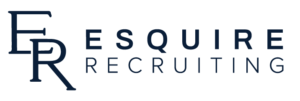As promised, today I will discuss ways to keep employees motivated. This is important given last week’s findings that employees want to work from home. 2022 is around the corner so as you head into the new year, it is important to think about how to look out for your employees or ways to stay motivated yourself.
- Team building events: the dreaded team building event! Although some may roll their eyes at this title, there are ways to get employees together without forcing employees to complete an obstacle course. There are virtual trivia games, escape rooms, book clubs, and Netflix watch parties that can act as a great way to get people together. If your team is hybrid, it is important to ensure that everyone still feels like they are a part of a team.
- Communication is key: having open lines of communication and support for your team is essential. With increased level of stress, you want to make sure your employees feel heard. Try scheduling time every week to check in with others or ask at the beginning of meetings how everyone is doing or what they did over the weekend.
- Offer flexibility: According to the Harvard Business Review, motivation can be increased if employees are given flexibility. Letting employees choose their location may not be too bad after all!
- Recognize and reward: in a virtual setting where tasks may go unnoticed, it is important now more than ever to recognize and reward positive behaviors. It can be frustrating among communication challenges and Wi-Fi troubles to be quite as efficient but words of encouragement to the team can go a long way.
These are just a couple of ways to keep your team engaged or remind yourself of ways to stay motivated at work. As a team leader, you want to ensure that you are doing these things to create the best environment for those you are leading.
Searching for a new position? Check out our open jobs list!
